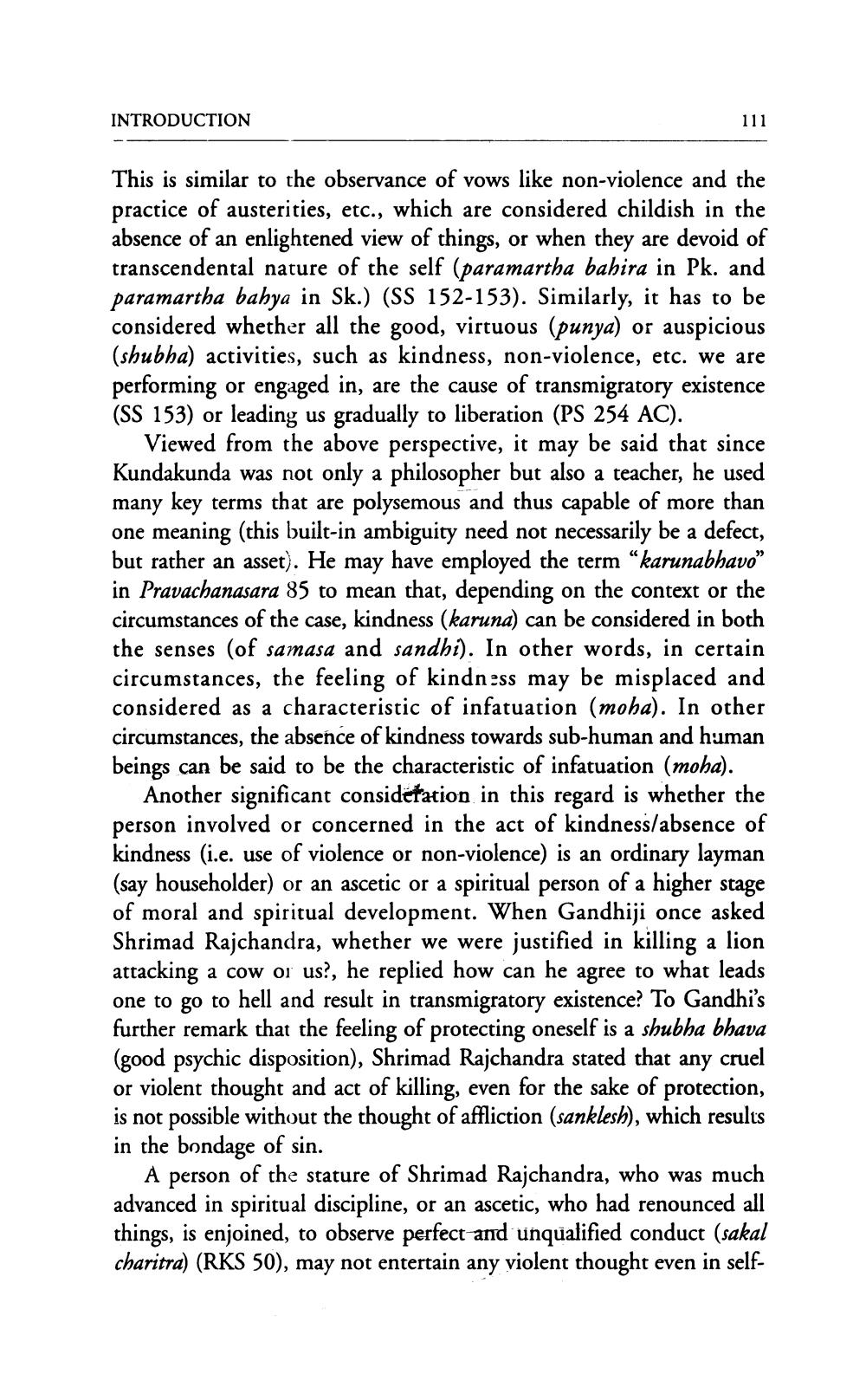________________
INTRODUCTION
111
This is similar to the observance of vows like non-violence and the practice of austerities, etc., which are considered childish in the absence of an enlightened view of things, or when they are devoid of transcendental nature of the self (paramartha bahira in Pk. and paramartha bahya in Sk.) (SS 152-153). Similarly, it has to be considered whether all the good, virtuous (punya) or auspicious (shubha) activities, such as kindness, non-violence, etc. we are performing or engaged in, are the cause of transmigratory existence (SS 153) or leading us gradually to liberation (PS 254 AC).
Viewed from the above perspective, it may be said that since Kundakunda was not only a philosopher but also a teacher, he used many key terms that are polysemous and thus capable of more than one meaning (this built-in ambiguity need not necessarily be a defect, but rather an asset). He may have employed the term "karunabhavo" in Pravachanasara 85 to mean that, depending on the context or the circumstances of the case, kindness (karuna) can be considered in both the senses (of samasa and sandhi). In other words, in certain circumstances, the feeling of kindness may be misplaced and considered as a characteristic of infatuation (moha). In other circumstances, the absence of kindness towards sub-human and human beings can be said to be the characteristic of infatuation (moha).
Another significant consideration in this regard is whether the person involved or concerned in the act of kindness/absence of kindness (i.e. use of violence or non-violence) is an ordinary layman (say householder) or an ascetic or a spiritual person of a higher stage of moral and spiritual development. When Gandhiji once asked Shrimad Rajchandra, whether we were justified in killing a lion attacking a cow or us?, he replied how can he agree to what leads one to go to hell and result in transmigratory existence? To Gandhi's further remark that the feeling of protecting oneself is a shubha bhava (good psychic disposition), Shrimad Rajchandra stated that any cruel or violent thought and act of killing, even for the sake of protection, is not possible without the thought of affliction (sanklesh), which results in the bondage of sin.
A person of the stature of Shrimad Rajchandra, who was much advanced in spiritual discipline, or an ascetic, who had renounced all things, is enjoined, to observe perfect and unqualified conduct (sakal charitra) (RKS 50), may not entertain any violent thought even in self




